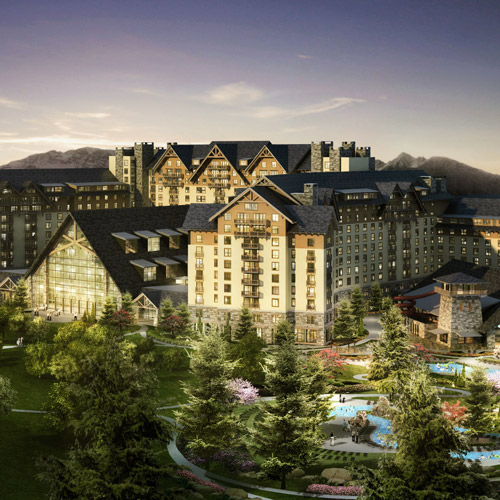In 2012, Richard Leal was tasked with managing the construction of a 650,000 square foot warehouse and shipping center for FreshDirect in the Bronx, and the process was anything but easy. The project involved working through a seemingly endless tangle of obstructions—but luckily, Leal came to the task armed with three decades of construction experience.
“I wish I’d had the ability to build this facility when I was 40, but I came here with an education of 30-plus years,” Leal, FreshDirect’s vice president of facilities, says. “Without that education, I’m sure the project would have been overwhelming.”
Leal, who is the son of Cuban nationals, didn’t grow up with construction as a career option on his radar. In college, he decided that his goal was to become a fighter pilot in the military. Unfortunately for him, when he went to the Navy ROTC, one of the first questions they asked him was about his vision. He gave them the truthful answer, which was that he used contact lenses, and was told that disqualified him from being a pilot.
With that long-held dream suddenly an impossibility, Leal went into mechanical engineering. Upon graduation, he worked for Newark-based energy company PSE&G.
“The first four months, I worked in every single department as part of a management training program for all inbound engineers,” he recalls. “They did that so when we were in the field we could connect with someone in whatever department we needed to interact with. For me, that was a great education.”
It was a good job, but his career path soon took a different turn.
During high school, Leal had spent his summers working in the warehouse of Big M, a women’s apparel chain in New Jersey that his father worked for. While still at PSE&G, he got a call from the owners asking him if he would direct construction for them as they continued to expand.
Over the next 18 years, Leal build 250 stores for the company. He eventually became director of store planning, handling procurement of everything but the clothing itself. He negotiated trucking contracts and led distribution management; his narrow experience as an engineer had expanded to include every aspect of the business.
The business was family-owned, so there were no stock options or other ways to participate in the company’s equity. At the end of his time there, Leal had become involved in every major decision the family made, but he didn’t feel that the importance of his role was being acknowledged and remunerated. “I got frustrated,” he says. “Something was missing.”
Disenchanted, he went to work for a trucking company, turning a $40 million dollar business into a $60 million dollar business during his tenure. From there, he worked for two years on building a 20,000-square foot wine store in Manhattan, a major project in a New York historical building. Leal and his team brought in architectural lighting, gas turbine cogeneration, and HVAC systems, making the entire store a temperature-controlled walk-in wine cellar.
After selling his house in New Jersey during the housing crash and moving permanently to his family’s second home in Hilton Head, South Carolina, the opportunity at Fresh Direct arose, but accepting the role would mean dividing his time between New York and Hilton Head. If he was going to do that, there had to be something very attractive about the offer. For Leal, the scope of the project and all the imagination it would require was what sealed the deal.
From the get-go, it was apparent that building the mammoth facility they envisioned on an empty railyard plot in the Bronx wasn’t going to be easy.
“We started working in May of 2012, and everything came to a grinding halt,” he recalls. “Residents who didn’t want the truck traffic that would go along with the business were filing lawsuits. We had to get a zoning override from the Department of Transportation to convert 70 acres of the plot and keep 28 acres for a potential rail yard.” FreshDirect persevered in spite of the controversy. “The Bronx is the poorest borough in the city, and we were bringing in 3,000 jobs; the community overall wanted it. So, we developed plans and got through the legal processes,” he says.
After the legal challenges were behind them, the challenges of honoring the regulations arose during construction. FreshDirect’s builders had to use PVC pipe instead of cast iron; fibers in concrete helped them avoid rebar. The FDNY mandated two water sources, so Leal and his team put up a 175,000-gallon water tank at the side of the building. Those are only a few of the scores of engineering coups that Leal and his team had to pull off.
The warehouse, with 650,000 square footage of total space, is 40 percent refrigerated and 60 percent ambient. It has food preparation facilities including a 10,000-square foot bakery. Walking through the space, a visitor would see deli meat being sliced, fresh shrimp being packaged, and steaks being cut to order. Customers who order online get their food delivered the next day. The construction also took into
account the need to give candidates a reason to commute to the South Bronx, so employees can use a basketball court and eat in a cafeteria where their meals are cooked to order. There are views of Randall’s Island, baseball fields, and the Manhattan skyline.
Nobody regards the project with more wonderment than Leal.
“It’s amazing to think back to when the project was an idea and walk in and see what we built over the course of seven years,” he says. “But by no means was it one person or even five people who did this. We were able to do this because of the efforts of dozens and dozens of employees.”


